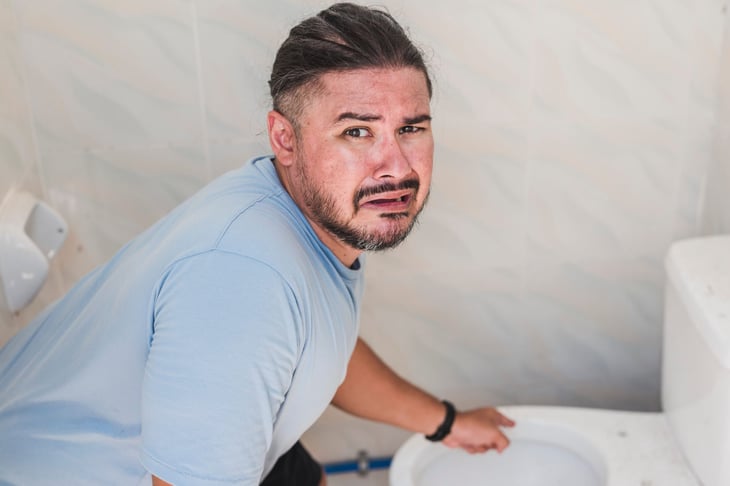
The bathroom might be the one area of the house where we most fear germs. Even those who are not neat freaks get a little squeamish about the bacteria that lurk there.
And yet, many of us engage in bad practices that only make the growth of germs and other unsanitary conditions worse.
So, if you want to keep your bathroom as clean as possible, make sure to avoid these nasty — and all too common — mistakes.
1. Not flushing the toilet properly
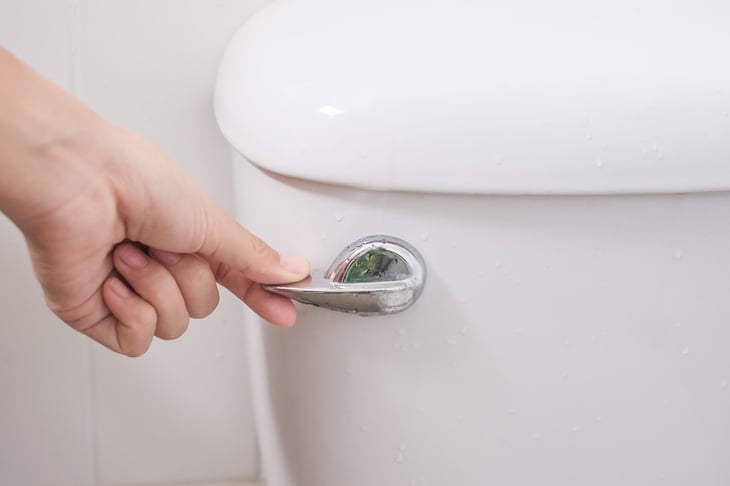
Let’s get the most disgusting mistake out of the way first: If you are flushing before dropping the toilet lid, you are creating an “ew” factor that is off the charts.
With the lid up, a flush can send germs and bacteria shooting through the air, where they can remain suspended for a time.
Yes, that reality is just as gross as it sounds. Repeat after us: Close the lid, then flush.
2. Failing to clean surfaces
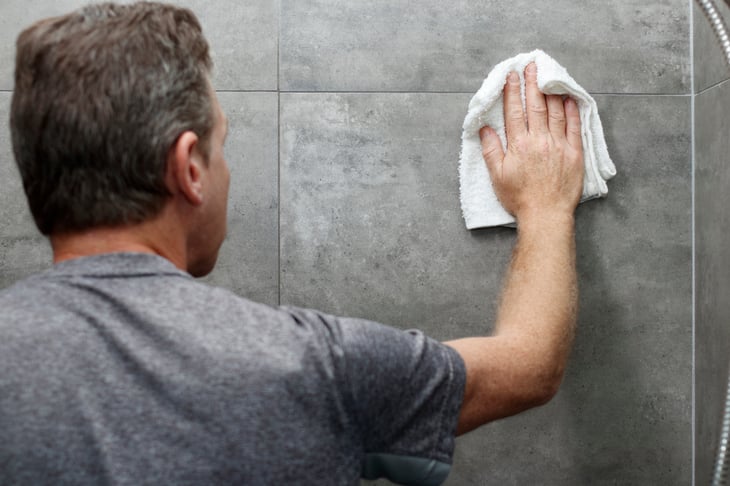
Bathroom surfaces can be a breeding ground for germs so you want to clean them thoroughly.
The Centers for Disease Control and Prevention suggests first cleaning surfaces with soap and water to remove germs, dirt and impurities. Then, sanitize by applying a weaker bleach solution or sanitizing spray.
If you want to go even further, disinfect using stronger bleach solutions or chemicals.
The CDC notes that sanitizing will reduce germs to levels that meet public health codes or regulations, whereas disinfecting will actually kill most germs.
3. Forgetting to replace the loofah
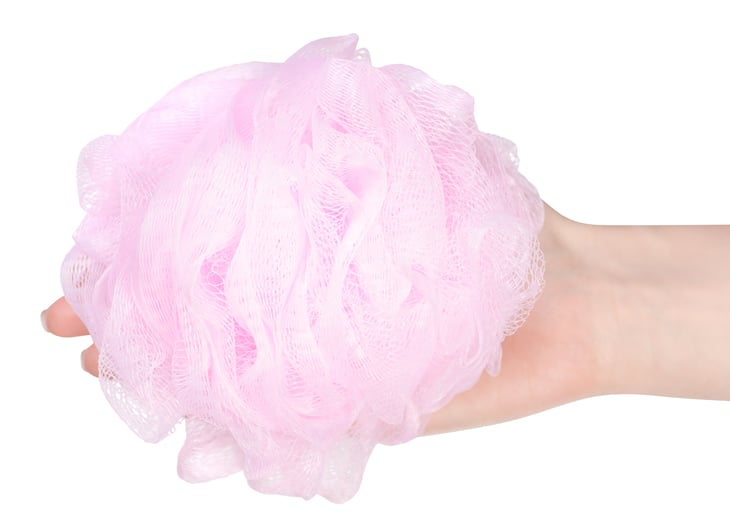
Loofahs help get rid of unwanted dead skin cells. But they also have many cracks and crevices that can trap moisture, providing an ideal environment for germ growth.
As Dr. Melissa Piliang, a dermatologist, told the Cleveland Clinic:
“Loofahs are interesting. They’re used in a wet environment and you hang them up in the shower, which is also a wet environment. They don’t ever totally dry out, so the loofah is a beautiful breeding ground for bacteria.”
The Cleveland Clinic recommends rinsing and drying your loofah after every use. You should avoid using it for a few days after you shave, so bacteria won’t enter nicks and cuts. And never use it on sensitive parts of your body.
Clean it in a diluted bleach solution for five minutes and rinse it thoroughly once weekly. Or throw it in the dishwasher. Replace natural loofahs after three weeks and plastic loofahs after two months.
4. Not washing your hands thoroughly
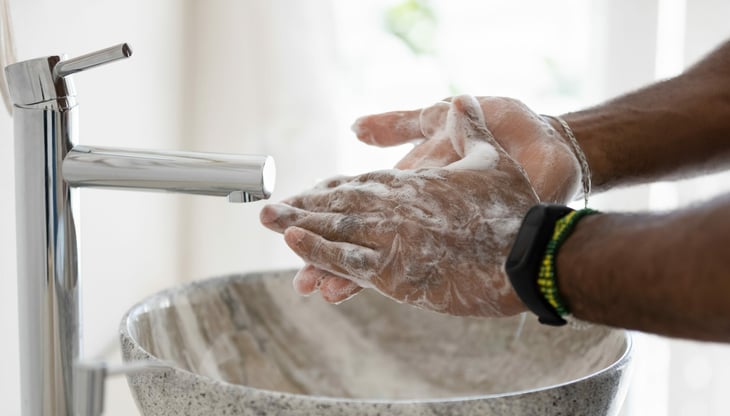
During the pandemic, we all learned the importance of scrubbing our hands thoroughly to keep the coronavirus that causes COVID-19 at bay. Remember all those tips to wash as you sang “Happy Birthday” to yourself?
But with COVID-19 on the wane, many of us have likely slipped back into bad habits.
The CDC urges you to lather your hands with soap, making sure to cover the back of your hands and the areas between your fingers and under your nails.
Then, scrub for a minimum of 20 seconds before rinsing and drying.
5. Letting hair collect in the bathtub drain
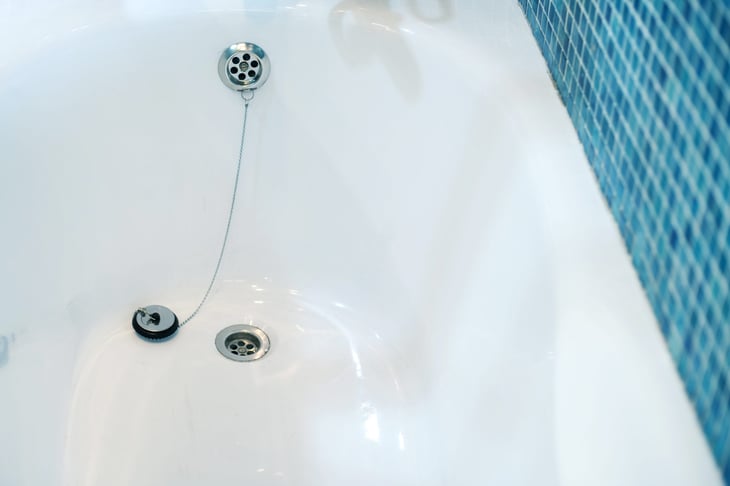
Every time you bathe, body hair ends up in the bathtub drain. Over time, this can create a nasty, tangled mess that may result in a call to the plumber.
So save yourself some cash by purchasing a bathtub drain protector that will keep hair out of the plumbing.
6. Letting ring stains build up in the toilet
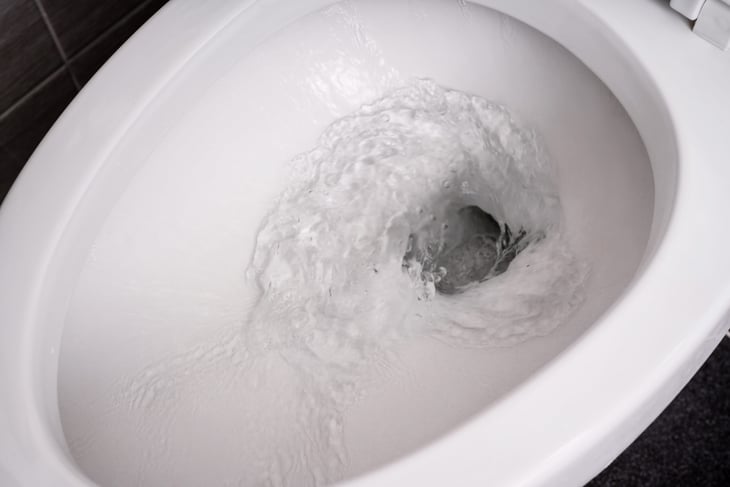
Ring stains create an unsightly mess in your toilet bowl. A pumice stone toilet bowl cleaner can rid the toilet of mineral deposits, rust, scale and other unwanted discolorations.
7. Keeping a toothbrush far too long
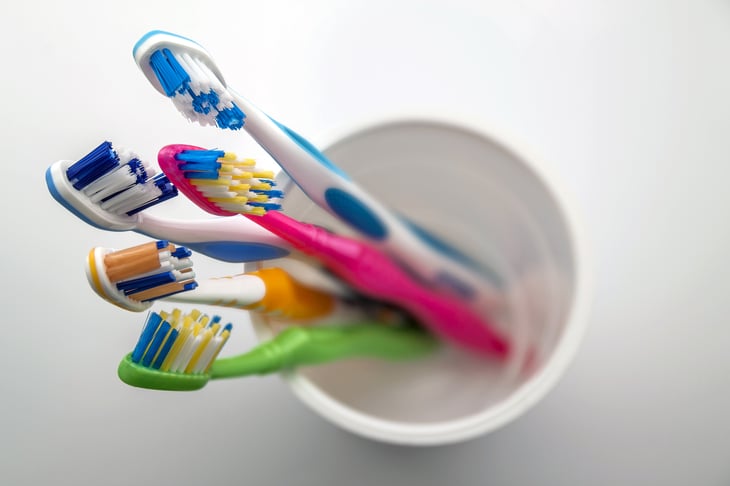
If you visit the dentist twice a year, it’s a decent bet that you change toothbrushes after each dental appointment.
But changing out your toothbrush twice a year will not do the job.
Instead, you should replace your toothbrush every three months, or at most every four months, the American Dental Association says. Once the bristles become matted and frayed, the brush won’t clean your teeth as effectively.
Although toothbrushes typically harbor bacteria, there is no evidence that the bacteria are bad for your teeth, according to the ADA.
8. Stretching too many uses out of towels
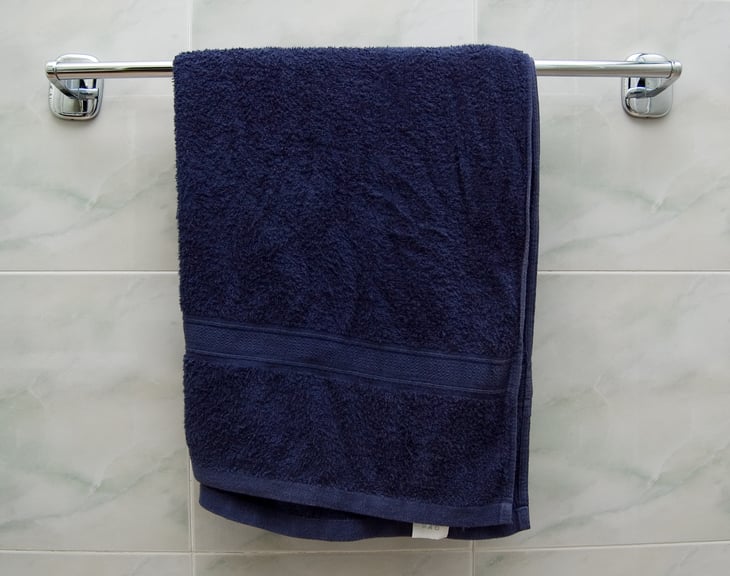
After you finish using a towel and hang it up to dry, the moisture in the towel lingers for a while. That makes it a breeding ground for germs.
Some experts recommend washing towels after no more than three to five uses. And always hang them between each use so they dry thoroughly.
9. Not washing the shower curtain
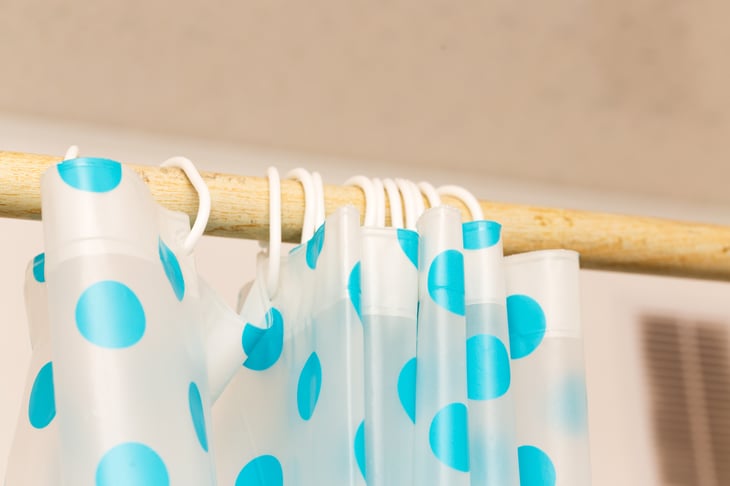
Few things collect as much moisture as your shower curtain. It is easy for mold or mildew to build up on the surface, particularly if you live in a humid climate.
So purchase a machine-washable shower curtain and liner and keep things germ-free.
